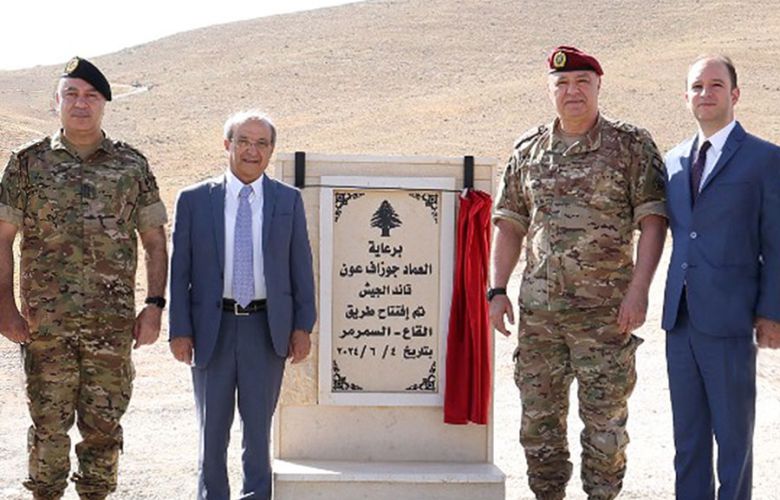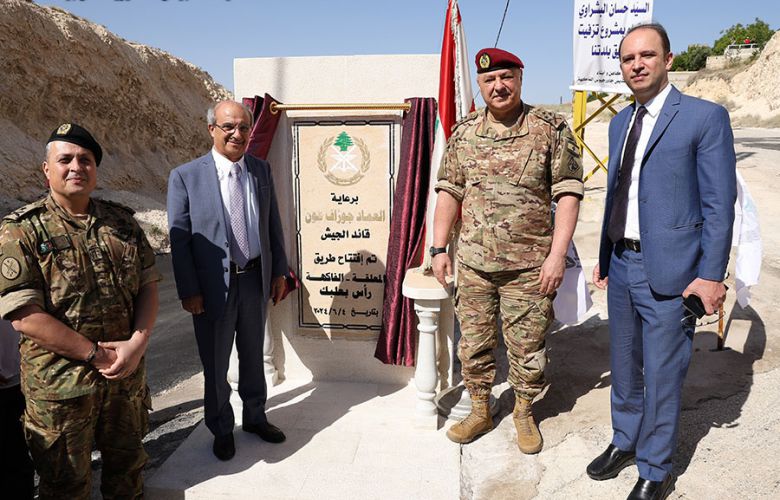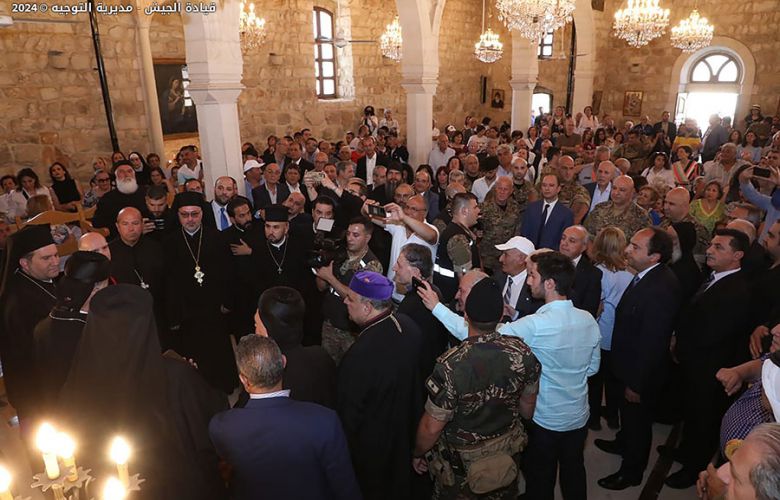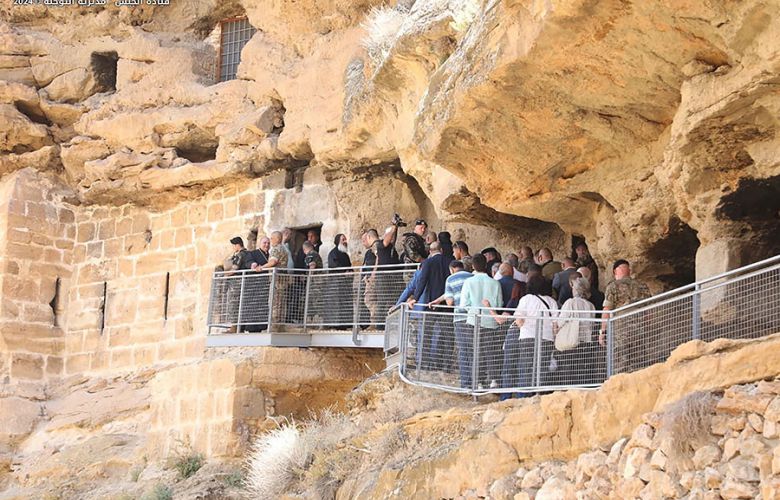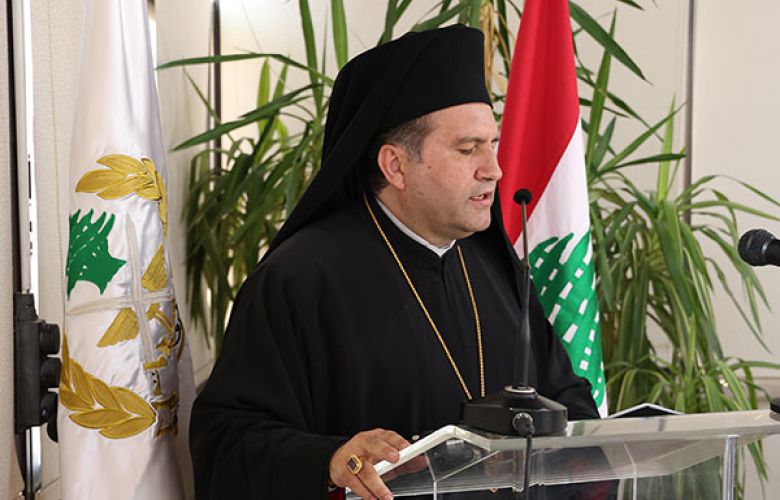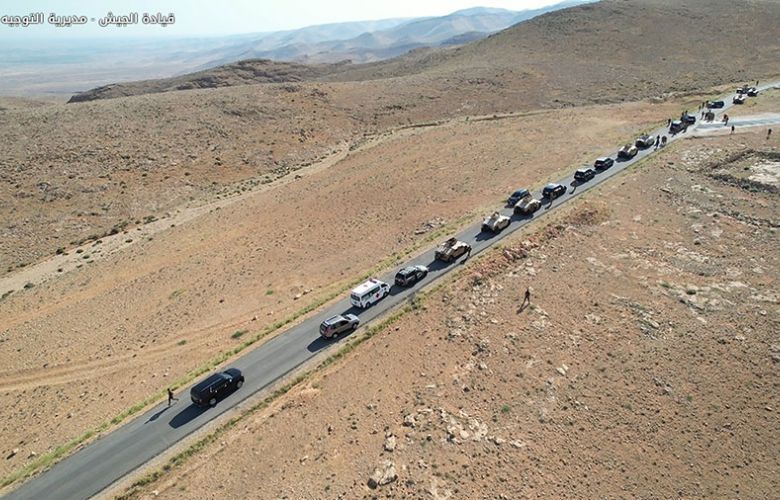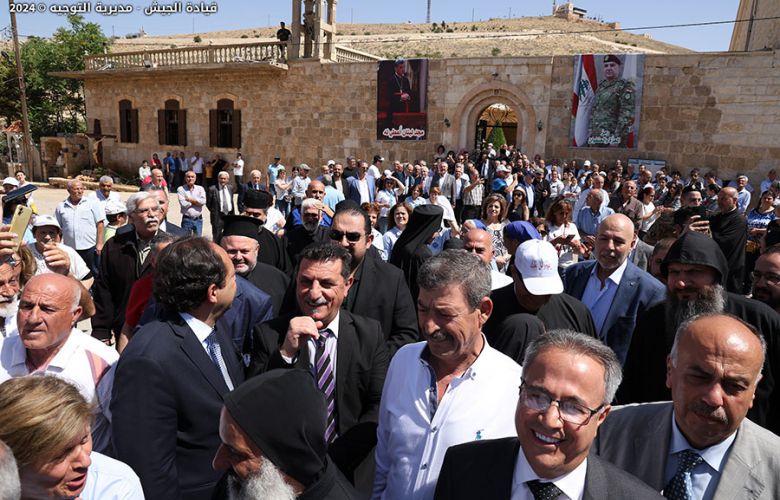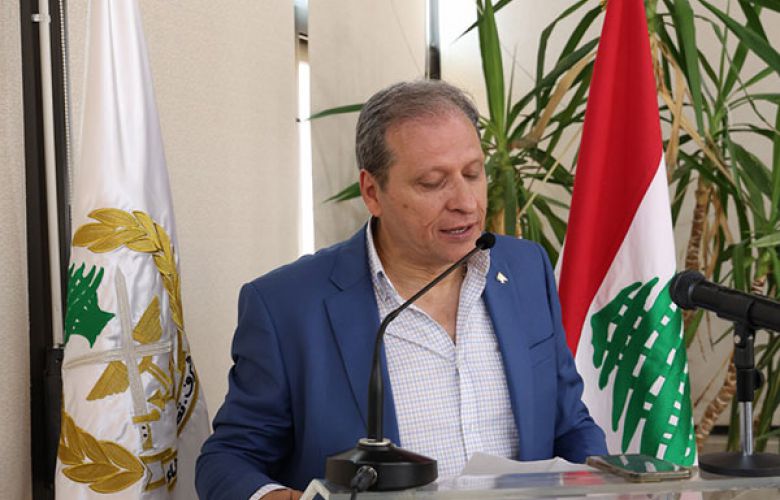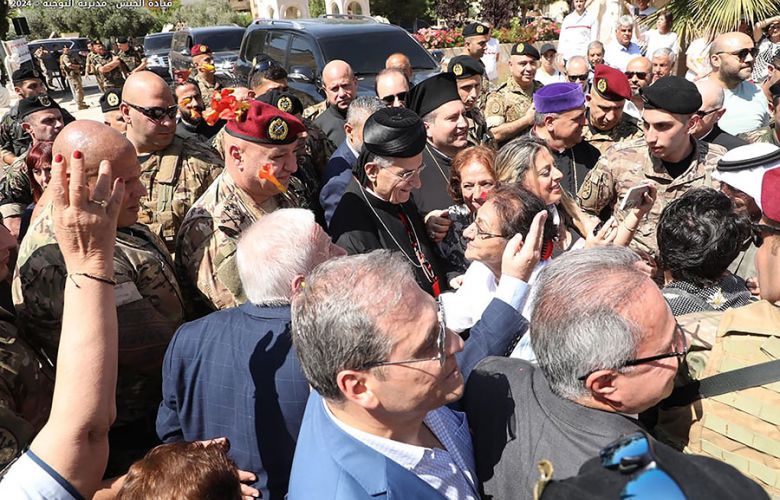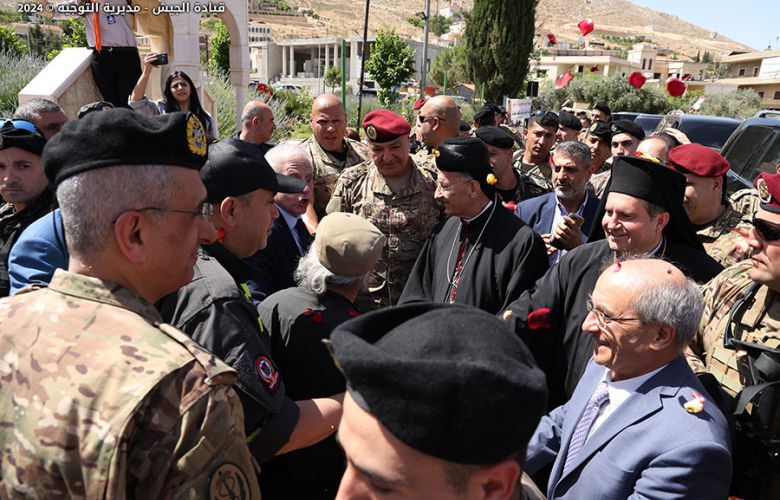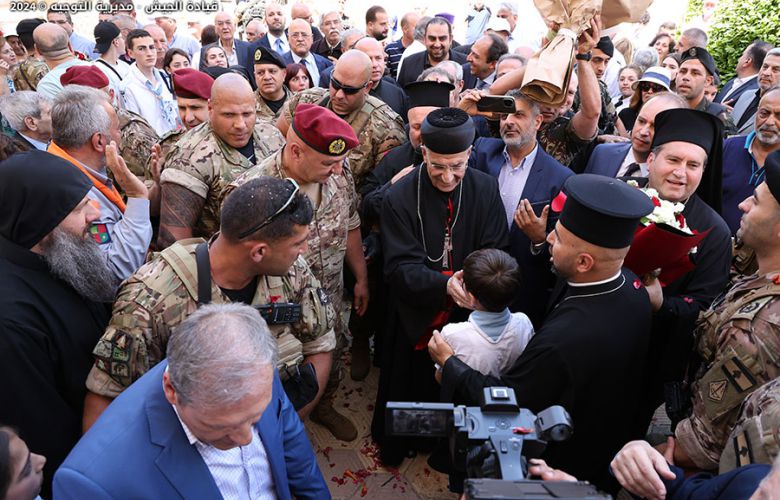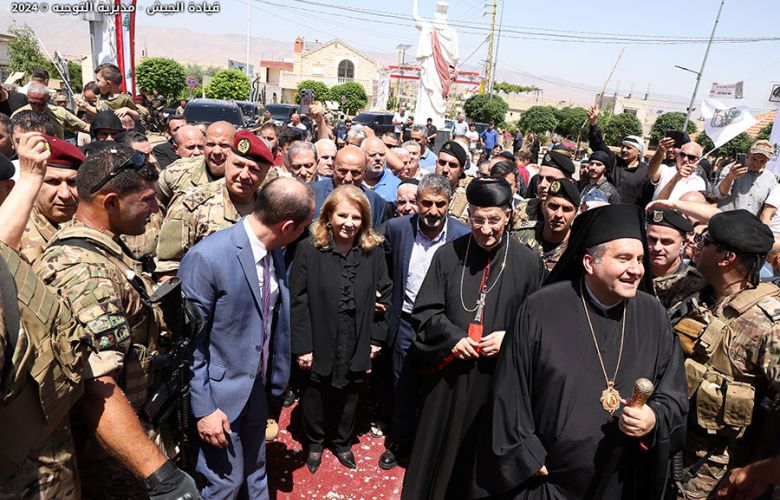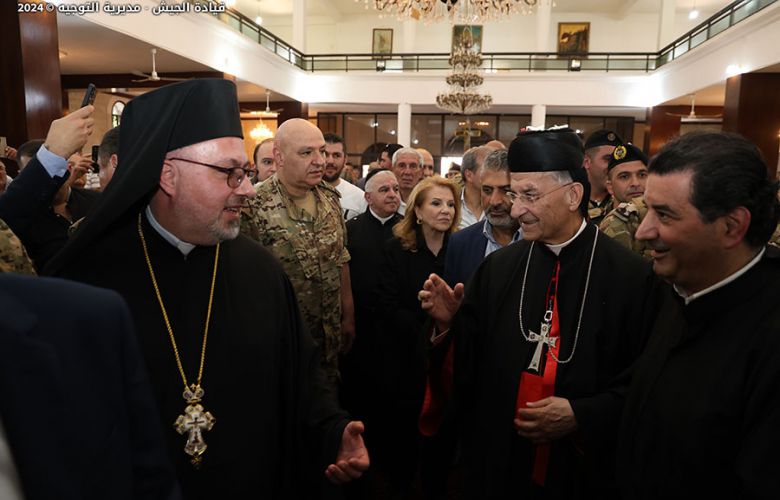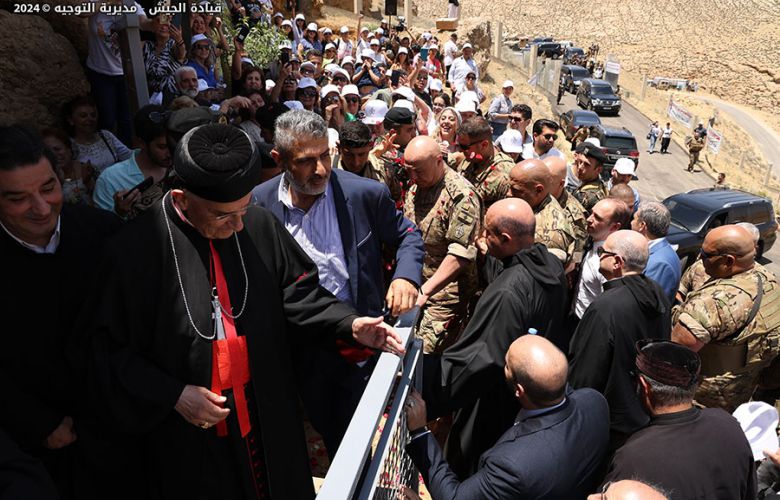The Lebanese Armed Forces Commander inaugurated roads in Ras Baalbek and El Qaa, accompanied by His Beatitude Patriarch Al Rahi, Minister George Kallas, and former Minister Leila Al Solh Hmadeh
The Lebanese Armed Forces Commander General Joseph Aoun, accompanied by His Beatitude Cardinal Mar Bechara Boutros Al Rahi, the Minister of Youth and Sports George Kallas, and the Deputy Chairman of the Alwaleed Bin Talal Humanitarian Foundation, former Minister Leila Al Solh Hmadeh, inaugurated the following roads: Deir Mar Maroun (Ras Baalbek – El Qaa - Kamouh Hermel), Majed Sabri Hamadeh (El Qaa), Al Maalaka – Al Fakeha - Ras Baalbek, and El Qaa – Al Samarmar. The event was attended by the Governor of Baalbek –
Hermel Bashir Khodr and local figures, as part of a series of initiatives aimed at facilitating the access of residents to their lands and the movement of military personnel and vehicles.
General Aoun and Patriarch Al Rahi visited the Mar Maroun Monastery and Al Saydeh Monastery - Ras Baalbek, as well as the St. Elias Church – El Qaa, where they were welcomed by the locals. They also visited the Al Dandash clan. During the tour, Minister Al Solh and General Aoun inspected the Ras Baalbek health center. At the end of the visit, a luncheon was held in honor of the LAF Commander, Patriarch AL Rahi, Minister Kallas, and Minister Al Solh, attended by local dignitaries. In his speech, Patriarch Al-Rahi considered this occasion as embodying the true Lebanese family that cannot be fragmented, but is united by a single spirit and heart despite its diversities. He praised the efforts of the Army Command to preserve the homeland and strengthen the ties between the Lebanese by opening new roads, while some are working to close them and weaken these ties. He hoped that no region in Lebanon would remain isolated from its people and the rest of the regions. He stressed the necessity of electing a President of the Republic in the Parliament as soon as possible, given the President's role as a symbol of national unity.
General Aoun said that no region is distant for the Army, as its centers are spread across the entire national territory, and its personnel are ready to serve their people wherever they are, based on their responsibility and sacred mission.
He stated: “We have determined over the years that this border region should receive special attention from us - whether through the establishment of new border centers or the fortification of existing ones, in addition to allocating a portion of the assistance received by the Army from Lebanese and foreign supporters and friends to create a network of roads connecting these regions to one another. This is due to the importance and benefits it provides to the local residents, facilitating their mobility and access to their agricultural lands, enabling them to invest in their land and steadfastly remain in their villages. At the same time, these roads help connect the military centers to one another and ease the movement of our soldiers to their posts in the highlands. We will not be deterred by some critics of this assistance, for the benefits it provides are more important. This assistance has national, social, security, religious, and touristic dimensions.
He added: "We are well aware of the needs of this region and the requirements of its people. The Army is doing its utmost to assist them and stand by their side, but its capabilities and resources are limited. However, it is certain that the Army will remain by their side, protecting them and defending them. We pledge to our people here, and in the rest of the Lebanese regions, in the presence of His Beatitude the Patriarch, that the Army will remain steadfast in the face of challenges, committed to its oath in defending its homeland and its people, and it will remain distant from the divisive atmospheres unfortunately witnessed in our nation."
He expressed his hope that Lebanon would regain its luster and the work of the institutions would be set straight, so that they can fulfill their national role and duties as they should, and that the country would regain its calm from the war waged by the Israeli enemy. He called on Lebanon's youth to cling to hope and remain in their homeland, which needs them, noting that the military institution itself needs them and looks forward to welcoming them into its ranks. He concluded by thanking all those who provided support for the opening of the roads.
Minister Kallas also viewed the Army as the guardian of the nation's honor, and noted that the people of the Bekaa region in general take pride in standing by the military institution and do not hesitate to support it in various ways, offering their best sons to join its ranks and even be martyred for the sake of Lebanon's dignity, sovereignty and independence. He called on the youth of Lebanon to volunteer in the Army. He also emphasized the importance of electing a President of the Republic before the vacancy turns into a deadly vacuum, with the aim of completing the constitutional institutions and consolidating the stability of the homeland.
Minister Hamadeh then referred to the pride of the Lebanese, particularly the people of Hermel, Ras Baalbek and El Qaa, in the Army, which plays a pivotal role in Lebanon's continuity and its steadfastness in the face of challenges.
On the other hand, the Melkite Greek Catholic Archbishop of Tripoli and the North, Bishop Edouard Daher, emphasized the importance of the achievements accomplished by the Army, starting from the liberation of the northern Bekaa Highlands, and extending to the development initiatives, particularly the opening of roads, for their contribution in easing the burden of the difficult circumstances.
Finally, the poet Nizar Francis recited a poem inspired by the occasion, in which he praised the role of the Army and its standing by the Lebanese in difficult circumstances.














